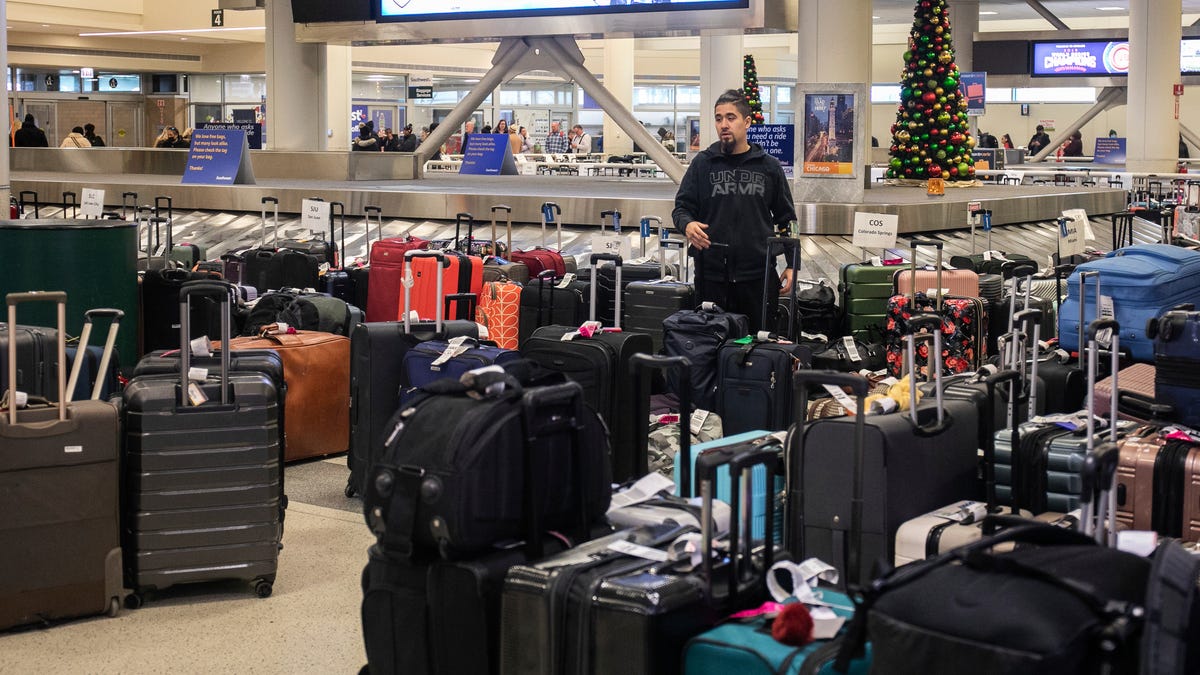Harry Campbell swears by putting tracking devices in his luggage.
“Over the past few months (I’ve) been traveling a bit more, and I guess I have more things of value that I want to protect,” the 36-year-old who runs the Rideshare Guy blog told USA TODAY. “Everyone knows travel is a hassle, luggage can get lost,” and he feels that anyone who doesn’t use the latest tech to track their luggage bears some responsibility if their bags go missing.
Campbell is hardly alone.
The past twelve months have been rough for travelers. Long lines in Europe, mass cancellations at Southwest, and an hourslong shutdown of a crucial national safety system are just some of the headaches flyers have encountered recently.
Tell us your story: Mobility device lost or damaged by an airline? USA TODAY wants to hear about it
What happens if your checked bag is lost? What if it’s delayed? Here’s what you’re owed, what to do.
A corollary to all of those issues has been that airlines and airports are struggling to keep people and their bags together.
Travel experts increasingly recommend following Campbell’s advice and putting Apple AirTags, Tiles, or other electronic tracking devices in their bags – especially checked luggage – before they head to the airport.
“It takes two to get your item back,” said Skyler Logsdon, CEO of Boomerang, a tech company that helps users digitize their lost and found experience. “What it does is it allows you to say with confidence that you have my item … Now you for certain know it’s there.”
He added that the location information from trackers can make it easier for travelers to navigate the lost and found claims process.
“I submitted my claim, I took a screenshot of exactly where it is,” Logsdon said of his own experience using trackers.
FAA provides an update: What really caused the NOTAM system to go offline?
Why should I put a Tile tracker, Apple AirTag in my suitcase?
Campbell said that AirTags recently saved him extra headaches when his golf clubs went missing ahead of a trip to Las Vegas.
He was using a service called Ship Sticks to get his clubs from his home in Los Angeles to his Nevada getaway, but they got lost in transit when the label he applied fell off.
“Most companies or airlines are handling thousands or tens of thousands of bags,” he said. “If you have that AirTag, you can see the actual status,” so he knew when his clubs were still in the warehouse or in transit.
They didn’t arrive in time for his golf game, but Campbell said being able to track them gave him peace of mind that they were accounted for.
“There wasn’t a whole lot I could do about it,” he said. Eventually, his clubs made it to Las Vegas and then back to his home in Los Angeles.
Social media is filled with similar stories from travelers who say AirTags or similar devices eased their stress about their bags going missing.
Yes. It’s the added peace of mind & security of knowing where our bags are. Having worked @ MKE, I was fortunate to see how ops work w/ baggage & how easy bags end up being left behind, put on wrong a/c or maliciously taken. I know it won’t solve everything, but it’s a start.
— Dan Vagabond Van (@FAE_MurkyPig) January 24, 2023
Yes! Even in my carry on bag! My bag has mistakenly been taken multiple times. Now I know when my bag isn’t close to me anymore!
— They call me Kay… (@Kayylajenae) January 23, 2023
Not all travelers agree that trackers solve the lost luggage problem, however. Some respondents on social media pointed out that they would find it frustrating to know where their bags are without any real way of getting them back.
Will the airline compensate you for missing luggage?
For delayed luggage, airlines have to compensate passengers for “reasonable, verifiable, and actual incidental expenses that they may incur while their bags are delayed,” within maximum liability limits, according to the U.S. Department of Transportation.
For domestic flights, that amount is $3,800, though airlines can choose to pay more. For most international flights, that number is lower at about $1,780.
If airlines find that a bag is lost, they have to compensate you for its contents, taking depreciation into account as well as the same maximum liability amounts.
Contributing: Nathan Diller, USA TODAY


Comment (0)